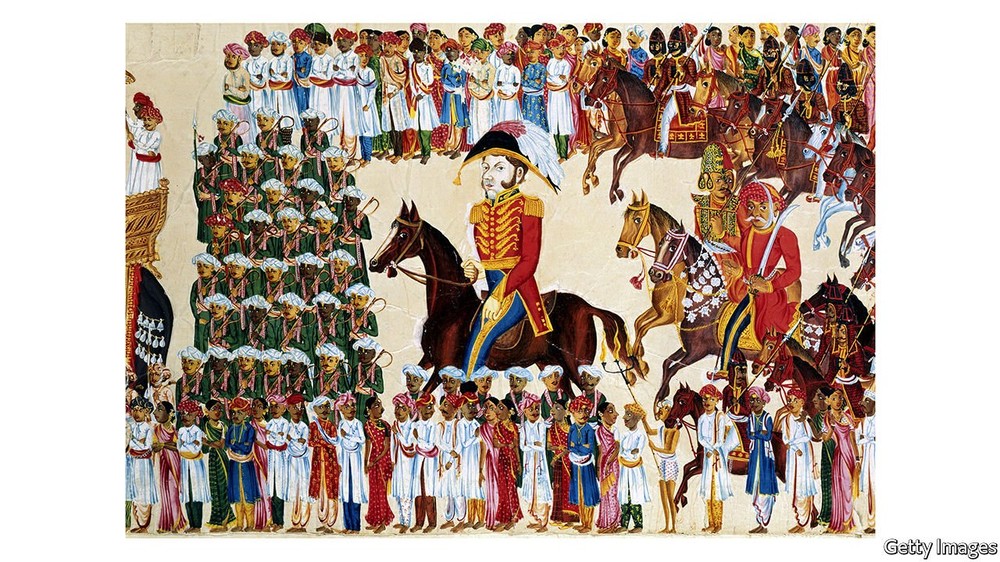
Death Factory: The Brutal Origins of the East India Company
THERE is a widely held belief that the British State added India to its list of global acquisitions in the way that any other imperial nation-state takes control of a foreign country, but this is simply not the case. In fact the truth is far more revealing and what most of us know as the British Raj was not forged by a government at all. Allow me to explain.
In 1614, Emperor Jahangir (1569-1627) of the powerful Mughal court ruled over a total of 100 million people, five times the number of those labouring beneath the Ottoman Empire. Whilst it is hard to believe, the European immigrants who lived in India at the time were described by the Mughals as ‘an assemblage of savages’ who were completely incapable of being civilised. By 1765, however, just a century and a half later, a terrified Shah Alam II (1728-1806) had been thoroughly defeated by troops belonging to the East India Company (EIC) and forced to dismiss his own revenue officials and hand over all power to a group of English traders. The conquerors of India, therefore, were not agents of the British Crown or its Government but a private corporation.
Whilst starting out as a group of small businessmen dealing in silk and spice, the EIC was to end up with 250 clerks and a private army of 200,000 men; twice the size of the British Army. Despite operating out of a small office in the City of London, the EIC had taken advantage of increasing factionalism between various Mughal chiefs and recruited a vast number of Indian soldiers. According to one disaffected Mughal official,
What honour is left to us when we have to take orders from a handful of traders who have not yet learnt to wash their bottoms?
At the head of the EIC was Major-General Robert Clive (1725-1774), first British Governor of the Bengal Presidency and a man whose personal income rose to £234,000 and made him the richest self-made individual in Europe. This is a period of history that the British State would like us to forget, not least as a result of the fact that it serves as an example of the way in which present-day governments are themselves dominated by huge corporations. As William Dalrymple explains,
behind the scarlet uniforms and the Palladian palaces, the tiger shoots and the polkas at Government House always lay the balance sheets of the Company’s accountants, with their ledgers laying out profit and loss, and the Company’s fluctuating share price on the London Stock Exchange.
The EIC had not only butchered its way through India in the pursuit of riches and resources to the value of £2.5 million, a vast fortune at that time, back home it had manipulated Parliamentary legislation to the extent that it became the first historical example of corporate lobbying. This involved bribing corrupt MPs to the tune of £1,200 a year each and owing loyalty to none but its hidden coterie of ruthless shareholders.
From these sinister beginnings, the EIC – an empire within an empire – went on to dominate the global economy. This is how the British really conquered India and this shameful episode, just one of many, should never be sugar-coated by the puerile British patriotism that continues to mask the brutal realities of the modern nation-state.